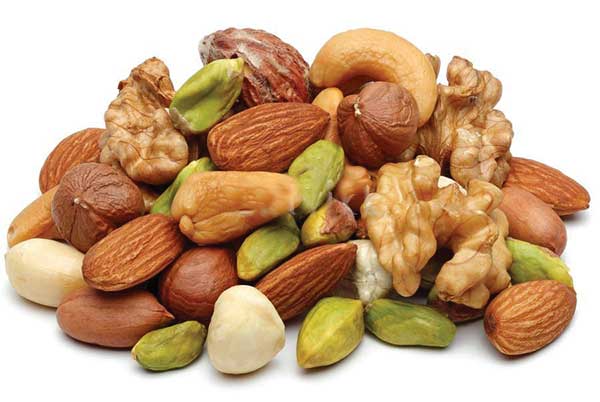This week You! takes a look at how important magnesium is for your body...
health
This week You! takes a look at how important magnesium is for your body...
We may not be aware, but consuming magnesium-rich foods is essential when it comes to maintaining a healthy and fit lifestyle. This is because such foods are vital for cellular health and over 300 biochemical functions in the body. Read on to find out more about the importance of magnesium...
Benefits of magnesium
According to health experts women need magnesium more than men. Magnesium is important for various functions including protein synthesis, nerve function, blood sugar control, neurotransmitter release, blood pressure regulation, energy metabolism and production of glutathione antioxidant. Magnesium also helps women's body to absorb calcium, build bone strength and also may help prevent some types of cancers.
Besides keeping osteoporosis at bay, health benefits of magnesium also include relief from symptoms of menopause. It can also help ease PMS symptoms, support a healthy pregnancy and can minimize the risk of premature labour. When taken during pregnancy, magnesium may protect against complications such as preeclampsia. Magnesium can aid many enzymatic reactions that control brain function and is helpful for mood disorders and bipolar disorder.
Last but not least, magnesium is important for weight loss. Yes, you heard it right! Magnesium not only helps the body with basic functions of the nerves, muscles and other organs, but it also makes good use of nutrients for sufficient digestion and processing of the foods you consume. This helps you maintain a healthy weight. The mineral plays an important role in regulating blood sugar levels and thus helps shedding extra pounds.
Effects of magnesium deficiency
Magnesium deficiency is dramatically under-diagnosed because it doesn't show up in a blood test. Only one per cent of the magnesium in your body is stored in your blood, and the majority of it is stored in your bones. Some of the main health challenges that have been linked to magnesium deficiency include hormone imbalance and PMS; fibromyalgia; heart attack; type 2 diabetes. Other problems like osteoporosis; constipation; tension or migraine; chronic fatigue; anxiety and depression can be caused due to deficiency of magnesium. Hence, it is vital to increase your intake of high magnesium foods in your daily routine.
Causes of magnesium deficiency
Since the body requires and uses magnesium quickly for many different functions; therefore, one's magnesium level can quickly go down. For example sweating often from exercise or other physical activities can deplete magnesium in the body. Following are some of the reasons one might have magnesium deficiency:
How to increase your magnesium intake
The fact is that many of the symptoms of low magnesium are not unique to magnesium deficiency, making it difficult to diagnose with 100 per cent accuracy. Thus quite often low magnesium levels go completely unrecognized and untreated.
So, the best way is to be careful and start consuming foods that are high in magnesium. Yes, the only way to avoid magnesium deficiency is to eat your way to a healthier you. The foods that have the highest levels of magnesium are green leafy vegetables, which are packed with chlorophyll. Chlorophyll is known as the 'life blood' of a plant and has the ability to absorb the sun's light and turn it into energy.
One major difference between human blood and chlorophyll is that human blood has iron in the centre of the cell, but plants contain magnesium.
Remember, buying foods that are grown organically may have higher levels of magnesium. The soil from conventional farms is depleted of magnesium because they don't rotate their crops or let the land rest. Also, they typically only put nitrogen, phosphorus and potassium back in the soil, but leave out magnesium.
Other foods that are also high in magnesium include pumpkin seeds, yoghurt, almonds, black beans, avocado, figs, dark chocolate, banana, salmon, coriander, cashews and goat cheese.